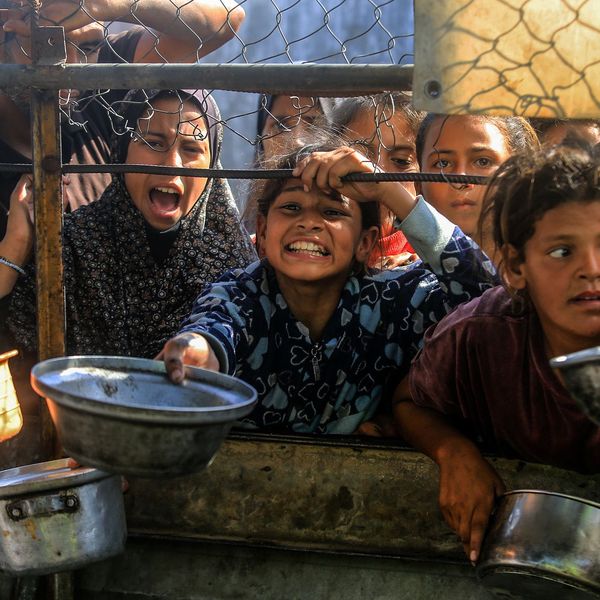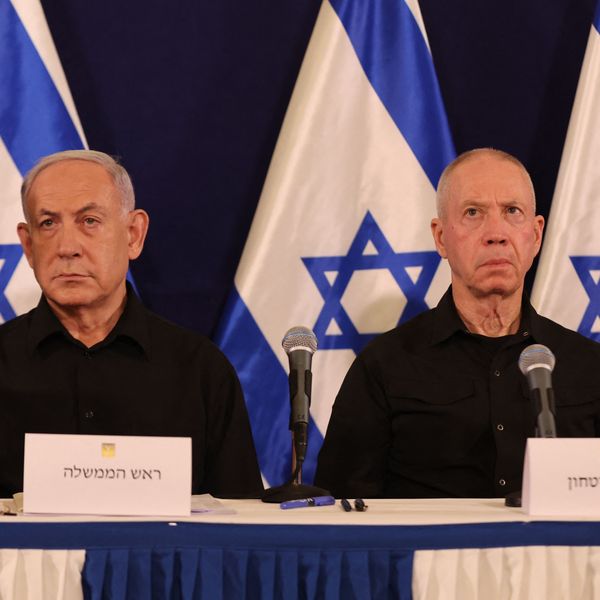JERUSALEM - Desmond Tutu, the South African
Nobel laureate, said yesterday there was a "possibility" Israel had
committed a war crime when 18 Palestinians from a single family were
killed by Israeli artillery shells in Gaza two years ago.
Tutu
said the Israeli attack, which hit the Athamna family house, showed "a
disproportionate and reckless disregard for Palestinian civilian life".
The archbishop presented his comments in a final report to the
UN Human Rights Council, which had sent him to Gaza to investigate the
killings in Beit Hanoun in November 2006. For 18 months Israel did not
grant the archbishop or his team a visa. They entered Gaza in May this
year on a rare crossing from Egypt.
On the three-day visit,
Tutu and his team visited the house, interviewed the survivors and met
others in Gaza, including the senior Hamas figure and former prime
minister, Ismail Haniyeh. At the time, Tutu said he wanted to travel to
Israel to hear the Israeli account of events, but he was not permitted.
"In
the absence of a well-founded explanation from the Israeli military -
which is in sole possession of the relevant facts - the mission must
conclude that there is a possibility that the shelling of Beit Hanoun
constituted a war crime," Tutu said in his report to the 47-member
council.
Tutu also said that rockets fired by Palestinian
militants into southern Israel should stop and should be investigated.
"Those firing rockets on Israeli civilians are no less accountable than
the Israeli military for their actions," he said.
For the past
three months a ceasefire between Israel and the militant groups in Gaza
has been in place. It has significantly reduced the number of incidents
and the death toll from the conflict there. Israel maintains a tough
economic blockade on the territory, restricting imports and banning
nearly all exports.
"It is not too late for an independent, impartial and transparent investigation of the shelling to be held," Tutu said.
He
said those responsible for firing the shells should be held
accountable, whether the cause of the incident was a mistake or wilful.
After
the incident, Israel's military said the shelling into Beit Hanoun that
day was a mistake and was the result of a "rare and severe failure in
the artillery fire-control system" which created "incorrect
range-findings". It said the shells had been aimed 450 metres away from
the edge of town. No legal action was taken against any officer.
However, it is unclear why the artillery was fired so close to a
residential area that morning and why shells continued to be fired
after the first one hit the Athamna house.
Tutu also said he
recommended that Israel pay adequate compensation to the victims
"without delay". His report said "reparation" should also be made to
the town of Beit Hanoun itself, and suggested a memorial to the victims
would also help the survivors. He suggested a physiotheraphy clinic as
one possibility.
The survivors in the family remain bitter and
most of the large extended family no longer live in the building. Since
the shelling they have received no financial help, apart from a monthly
stipend from the Palestinian Authority of PS50 for each of the 18 dead.
Aharon
Leshno-Yaar, Israel's ambassador to the UN in Geneva, where the Human
Rights Council was meeting, rejected Tutu's report as "another
regrettable product of the Human Rights Council".
"It is regrettable that this mission took place at all," he added.
Leshno-Yaar
said the report gave de facto legitimacy to Hamas, the Islamist
movement that won elections in 2006 and then seized full control of
Gaza last year. "This does not serve the interests of Israel or the
Palestinians or the cause of peace," he said.


